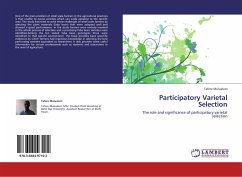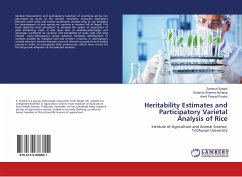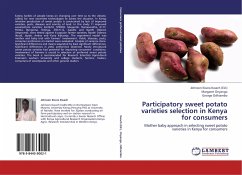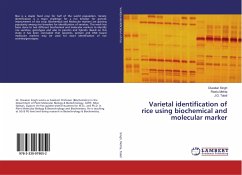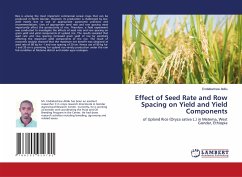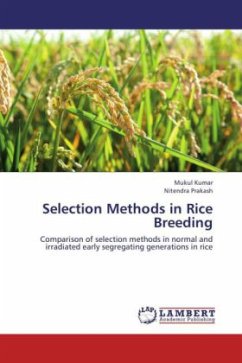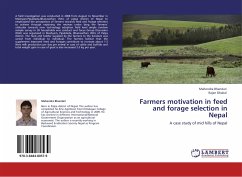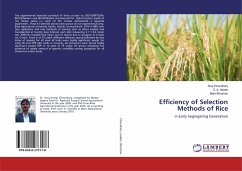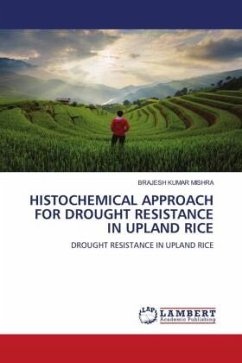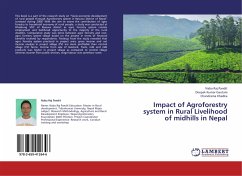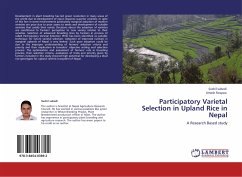
Participatory Varietal Selection in Upland Rice in Nepal
A Research Based study
Versandkostenfrei!
Versandfertig in 6-10 Tagen
32,99 €
inkl. MwSt.

PAYBACK Punkte
16 °P sammeln!
Development in plant breeding has led green revolution in many areas of the world due to development of input response superior varieties. In spite of this fact in some environments particularly marginal adoption of modern varieties are poor due to poor assess to seeds and development of suitable varieties that satisfy their needs. Decisions about the adoption of varieties are conditional to farmers perception to new variety relative to their varieties. Selection of advanced breeding lines by farmers in process of called Participatory Varietal Selection (PVS) has been identified as suitable te...
Development in plant breeding has led green revolution in many areas of the world due to development of input response superior varieties. In spite of this fact in some environments particularly marginal adoption of modern varieties are poor due to poor assess to seeds and development of suitable varieties that satisfy their needs. Decisions about the adoption of varieties are conditional to farmers perception to new variety relative to their varieties. Selection of advanced breeding lines by farmers in process of called Participatory Varietal Selection (PVS) has been identified as suitable technique for future varietal selection. Adoption of improved cultivars in marginal uplands of Nepal is very limited. Such poor adoption could be due to the improper understanding of farmers selection criteria and priority and their implication in breeders objective setting and selection process. The optimization and assessment of farmers role in breeding process, their selection criteria, evaluation of traits and priority given by farmers included in this study showed high potential for developing a ideal rice genotypes for upland rainfed ecosystem of Nepal.



